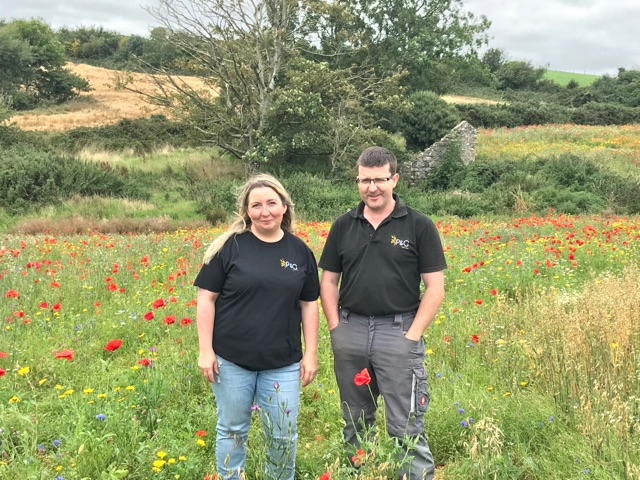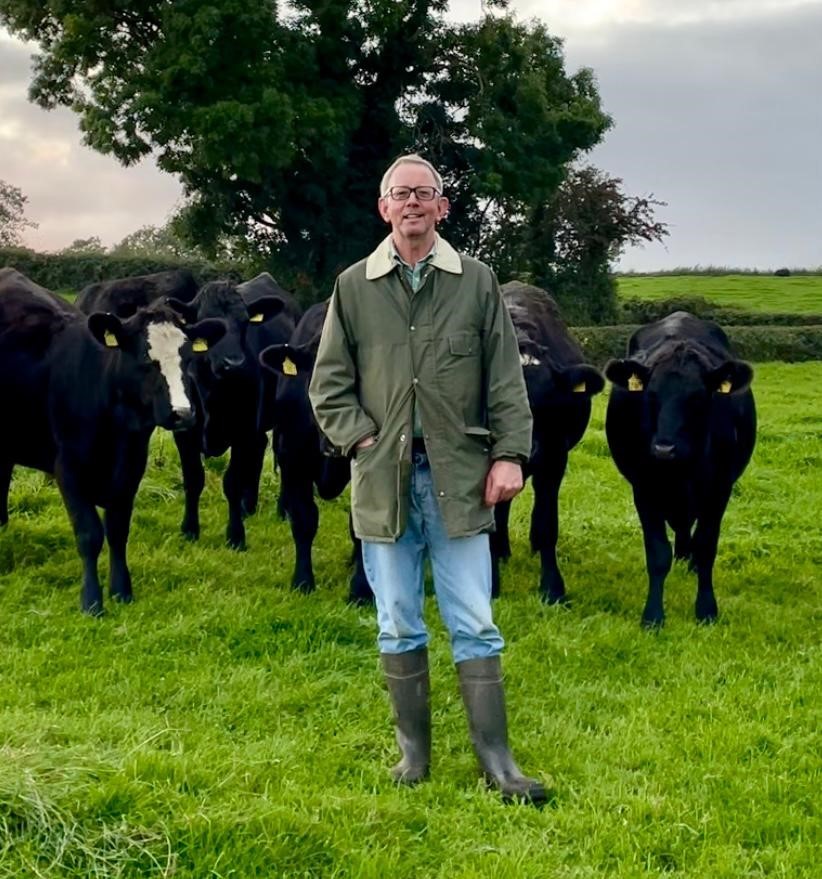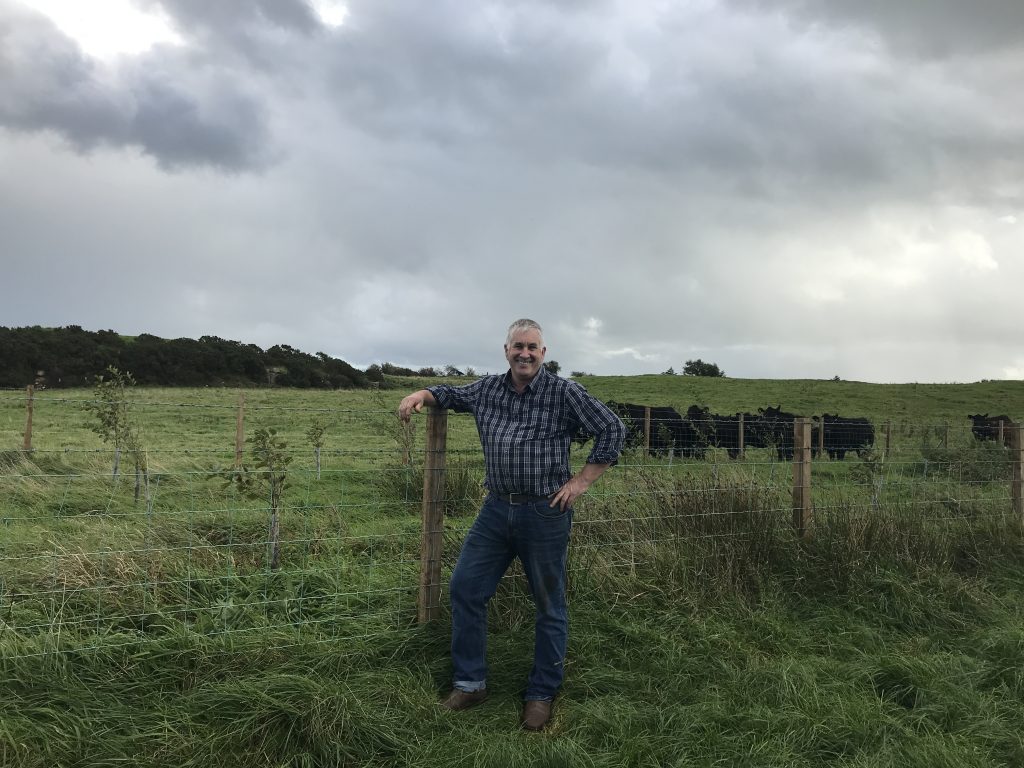Efficient Sustainability
CAFRE has recruited three technology demonstration farms who can demonstrate the essential technologies within the theme of Efficient Sustainability
Group bookings must be made through CAFRE.
Telephone: 028 9442 6790
Email: kt.admin@daera-ni.gov.uk
Patrick Flynn – Castlewellan, Co. Down.

Patrick, in partnership with his wife Geraldine, runs a large arable enterprise alongside a small suckler and sheep enterprise outside Castlewellan. The couple are committed and focused on farming with the environment in mind.
Patrick is a member of the Environmental Farming Scheme (EFS), which has assisted with the establishment of wildflower margins within the arable enterprise. Patrick is also LEAF Marque accredited; this is a leading global assurance system recognising more sustainably farmed products. In conjunction with the Ulster Wildlife Trust, Patrick has also managed a range of farm habitats in an effort to improve bio-diversity on the farm; this includes hedgerow cutting regimes allowing hedges to flower and produce berries as winter feed for birds.
While farming with the environment in mind is a personal interest, the need for a financially sustainable business must also be a consideration. A particular focus for the farm has been the utilisation of organic manures and reduced tillage practices, which provide multiple benefits across the areas of carbon reduction and ammonia emissions. This, in combination with precision nutrient and agrochemical application, allows Patrick to maximise the return on investment from these inputs.
Investigation, investment in and adoption of the most suitable technologies for the business is an area of interest for both Patrick and Geraldine. Recently, the development of a grain store including an integrated rainwater harvesting system has been completed. With so much focus on reducing the Carbon Footprint of farm businesses, Patrick and Geraldine are passionate about showing how even small investments in technology and farming more sustainably can be beneficial for both the farmer and the environment
William McIlroy – Dungannon, Co Tyrone

William, alongside his son Samuel, run an Aberdeen Angus x beef finishing business outside Dungannon, Co. Tyrone. William and Samuel are enthusiastic about farming with the environment in mind. William’s alternative land use, of difficult to manage areas of the farm, is something that will be discussed during the Technology Demonstration Farm visit. This includes planting woodland in the wet corners of fields and hedgerow establishment to improve time management, animal handling and animal welfare.
William has been a member of various DAERA environmental schemes and has used this support to plant mixed species woodland, hedgerows and riparian margins. The installation of solar panels has also provided the business with additional cost savings. A recent RSPB survey highlighted the presence of rare bird species including the reed bunting and spotted fly-catcher. The adoption of a soil analysis policy, and use of CAFRE’s nutrient management calculators to plan nutrient applications, has identified that there is currently no need to purchase any Phosphate (P) or Potassium (K) chemical fertilisers.
Victor Chesnutt – Bushmills, Co Antrim
Victor, in partnership with his son David, run a dairy, suckler beef and sheep enterprise outside Bushmills, Co. Antrim. These livestock enterprises are managed alongside an extensive range of environmental features, complimenting livestock health and welfare on an exposed coastal site for example tree corridors, hedgerow establishment and management, and shelterbelts. These measures have also enhanced wildlife and biodiversity around the farm, highlighted by the return of the Irish Hare.

With an interest in agricultural policy and a history of participation in various environmental schemes, stretching back to The Countryside Management Scheme in 2002, Victor is well placed to talk about the current environmental threats and opportunities for agriculture. Victor will demonstrate DAERA funded measures, including establishment of new hedges and woodland and watercourse protection to visitors. In the dairy, a number of technologies have been installed to lower the business’ carbon footprint, including solar panels, heat recovery systems and rainwater harvesting. All this helps reduce carbon emissions associated with the farm in the fight against climate change.
